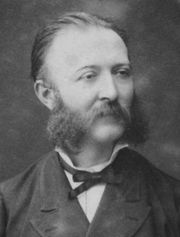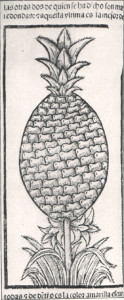Antillies
Gaffarel, Paul
 Paul Gaffarel (1843-1920) was a French historian who in his 1869 work, Rapports de l’Amérique et de l’Ancien Continent [1435], supported an Atlantic location for Atlantis. He believed that the influence of Atlantis could be detected in the Americas, Egypt and the Canaries.
Paul Gaffarel (1843-1920) was a French historian who in his 1869 work, Rapports de l’Amérique et de l’Ancien Continent [1435], supported an Atlantic location for Atlantis. He believed that the influence of Atlantis could be detected in the Americas, Egypt and the Canaries.
In a later book, Histoire de la découverte de l’Amérique [1436], he records a belief among the native Caribs of the southern Caribbean islands that the Antillies were once a single landmass, with a similar tradition found in Haiti.
>Paul Gaffarel wrote a number of papers between 1875 and 1890 on pre-Columbian trans-Atlantic voyagers from Europe. He presented a 38-page paper on the Phoenicians’ voyages to America to the Congrès International des Américanistes in Nancy (France) in 1875. Other essays concerned the Vikings and ancient Irish(a).<
(a) Paul Gaffarel – Atlantisforschung.de (atlantisforschung-de.translate.goog) *
Oviedo y Valdéz, Gonzalo Fernández
Gonzalo Fernández Oviedo y Valdéz (1478-1557) was a Spanish historian and in 1519 the author of what was probably the first literary work produced in the New World, Libro del muy esforzado e invencible caballero Don Claribalte.
 On his return to Spain, Oviedo wrote an important history of the Spanish Indies, La historia general y natural de las Indias[1117], which included what is believed to be the first illustration of a pineapple. Most of his work was not published until the mid-19th century. (volume one available online(a))
On his return to Spain, Oviedo wrote an important history of the Spanish Indies, La historia general y natural de las Indias[1117], which included what is believed to be the first illustration of a pineapple. Most of his work was not published until the mid-19th century. (volume one available online(a))
Sprague de Camp, without citation, listed[0194] Oviedo as having located Atlantis in what is modern Iraq and that the survivors of its destruction escaped to the Americas. Thorwald C. Franke has drawn attention to the absence of any such reference in ‘La Historia’.
*In his Historia, Oviedo identified the Antilles as the legendary Hesperides.*
Stephen P. Kershaw notes[1410.227] that Oviedo attributed the peopling of the Americas to Phoenicians and/or Carthaginians.
(a) https://archive.org/details/generalynatural01fernrich
